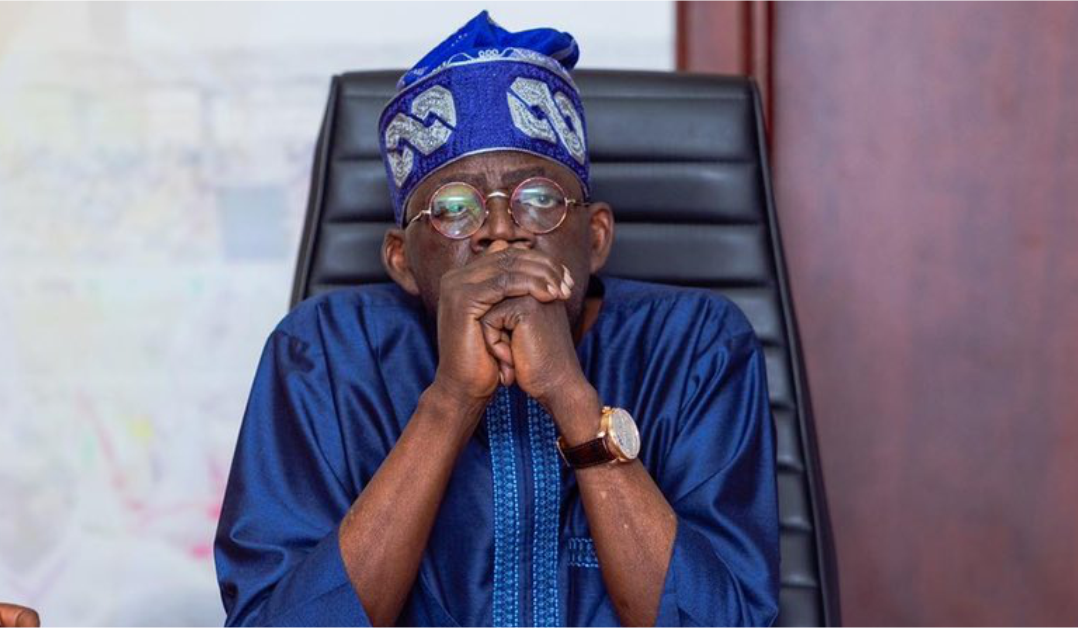By
Dr. Olatunji Olateju
On May 13, 2025, the Department of State Services (DSS) took a surprising legal step: it stormed the Federal High Court in Abuja to halt what it perceives as a creeping insurrection. The target? Not armed insurgents or separatist agitators, but a professor—Pat Utomi—and his formation of what he termed a “shadow government.” The DSS is praying the court to declare this initiative unconstitutional, describing it as a parallel authority, a destabilizing force, and an affront to Nigeria’s 1999 Constitution.

The facts are now public. Prof. Utomi has assembled a group of thinkers, professionals, and reform-minded individuals to offer alternative policy positions and monitor government performance. His shadow cabinet includes figures like Dele Farotimi, Cheta Nwanze, and others—none of whom has declared themselves a minister with executive powers. Yet, Nigeria’s top domestic intelligence agency believes this intellectual exercise poses a “clear and present danger” to the republic.
Let us pause here.
In mature democracies, shadow governments are standard instruments of political accountability. In the United Kingdom, Canada, and other Westminster systems, opposition parties maintain shadow cabinets to critique the ruling government and propose alternatives. Even in presidential systems like the United States, think tanks, advocacy coalitions, and opposition alliances routinely offer competing visions for governance. These structures are not only permitted—they are essential for vibrant political discourse.

Nigeria, it seems, has chosen a different route.
The DSS invokes Sections 1(1), 1(2), and 14(2)(a) of the Constitution to argue that only institutions created by the Constitution can govern. But Utomi is not claiming governmental power. He is not signing executive orders or issuing state budgets. His initiative is political commentary clothed in structure, not a coup in motion. If this act of thinking differently is declared unconstitutional, what remains of the freedom of association (Section 40) and expression (Section 39) that the same Constitution guarantees?
This move by the DSS raises urgent questions:
When did political thought become sedition?
How does proposing alternative policy solutions amount to subversion?
Is Nigeria so insecure in its democracy that even ideas must be policed?

This episode reflects deeper anxieties within Nigeria’s political class. A government confident in its performance and legitimacy has nothing to fear from criticism—structured or otherwise. But a government unsure of its moral authority will see even peaceful dissent as treasonous. The DSS’s lawsuit thus reveals more about the state’s fragility than the threat posed by Utomi’s shadow cabinet.
Furthermore, this action sends a dangerous message: that Nigeria’s civic space is shrinking. Academics, activists, and professionals may now hesitate before organizing, speaking, or even proposing reforms—fearing that surveillance, arrest, or court action may follow. In a country already plagued by voter apathy and elite domination, the demonization of independent political thought can only deepen our democratic decay.
Let us be clear: If Prof. Utomi or any group seeks to impersonate executive authority, calls for insurrection, or builds structures with coercive power, the state is right to intervene. But to go to court over a policy-monitoring group with no enforcement capacity is to conflate disagreement with disloyalty. That is not democracy—it is authoritarian reflex in democratic clothing.
In truth, shadow cabinets are not threats—they are signs of political maturity. They encourage the ruling government to perform better, offer citizens multiple lenses of governance, and create competitive ideas that improve public policy. By stifling such initiatives, the government only reinforces its own monopoly on thought and governance—a dangerous posture in any society aspiring to democratic excellence.
It is time for the Nigerian state to learn that power is not preserved by silencing dissent but by earning legitimacy. Prof. Utomi’s shadow government should be engaged with, not litigated into silence. After all, in the grand theatre of democracy, the government does not own the stage—it merely holds a role, temporarily.
OLATEJU WRITES FROM ACHIEVERS UNIVERSITY, OWO, ONDO STATE

